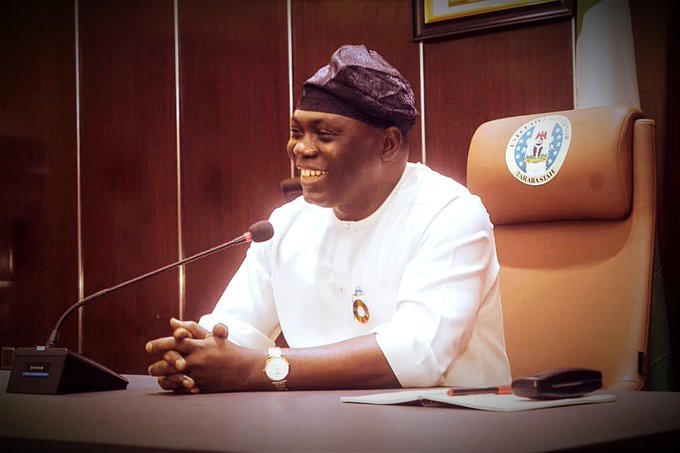The fact that a state government could rise any day anytime to set new standards for teaching strongly suggests how far teaching still remains from being a profession in Nigeria; a reason to explain why the country’s education system continues to fuddle in endless crisis.
The Taraba State governor, Dr Agbu Kefas, recently announced plans by his administration to make master’s degree the minimum academic qualification for anyone wishing to teach in the state’s secondary schools.
The governor also disclosed that the minimum academic qualification for teaching in primary schools will be a university first degree; adding that the current era when the National Certificate of Education (NCE) is the minimum academic qualification for primary school teachers will soon be over. The governor made these pronouncements last week during a dinner he had with journalists in Jalingo, the state capital.
It is not clear what Governor Kefas intends to achieve with the policy. Governor Kefas did not mention whether or not the master’s degree he’s asking teachers to obtain would be earned through a strategic in-service training programme that would be organised and funded by the Taraba State government. Details of the specific issues, which the policy seeks to address are also not known to major stakeholders including parents. What are even the assurances, too, that earning a master’s degree in a system with compromised standards could make a teacher better than another with a bachelor’s degree or even an NCE?
To further interrogate the new policy, the question posed by educationists is whether a trained teacher requires a master’s degree to efficiently and effectively perform his teaching job in a secondary school. While NCE is sufficient for a certified teacher to teach in Nigerian basic schools, a well-trained teacher does not need more than a first degree to teach in secondary schools. More important than just a master’s degree for a teacher is a degree in education, or at least some professional teacher training, such as a postgraduate certificate or diploma in education in addition to a degree.
Governor Kefas’ declaration to raise the minimum teaching qualification higher than the one stipulated by the existing National Policy on Education sounds unlike a very carefully measured speech. It is not clear if the proposed policy benefitted from any constructive consultations with relevant stakeholders including the National Council on Education or the Joint Consultative Committee on Education (JCCE). The governor’s decision to set a new minimum qualification for teaching in Taraba secondary schools should have been the outcome of any critical interaction between the Taraba State government and key regulatory agencies including the Teachers Registration Council of Nigeria (TRCN) and the Nigeria Educational Research and Development Council (NERDC).
The first problem with Taraba’s planned course of action is its being a contradiction of Nigeria’s current national policy on minimum teaching qualification. For any personnel to qualify to be registered by the TRCN as a teacher, Section 92(b) of the existing National Policy on Education (NPE) stipulates that “The minimum qualification for entry into the teaching profession shall be the Nigerian Certificate in Education (NCE).” Second, there’s a high probability that the proposed policy would compel serving secondary school teachers in the employment of the Taraba State government to want to obtain master’s degree certificates by all means, including perhaps fraudulent means, to enable them survive the requirement of the new policy.
A third argument is a nostalgic reason for us to differ with Governor Kefas. With their Grade III Teachers Certificate in the 1960s and Grade II Teachers Certificate in the 1970s, teachers of those glorious days who had no university degrees were more efficient in their jobs. They produced excellent minds who are still considered, even today, as the best generation of school leavers.
It would be recalled that the federal government once made a similar pronouncement, which because of its impracticability, never went further than being a mere political statement. In 2015, the then Nigerian Minister of Education, Ibrahim Shekarau, after listening to the Finnish Ambassador to Nigeria Pirjo Suomela-Chowdhury who paid him a courtesy visit, whimsically offered to make a university degree the minimum qualification for teaching in Nigerian schools. We are convinced that limiting the root cause of the sliding fortunes of the country’s education sector to teaching qualification is myopic.
We advise Governor Kefas to prioritise other issues such as better pay packages for teachers, strengthening quality assurance mechanisms through regular inspection visits to schools, continuing training of teachers, provision of quality learning materials like books and laboratories. It makes little sense to have a master’s degree holder as a teacher in a class without a roof or chairs.

 Join Daily Trust WhatsApp Community For Quick Access To News and Happenings Around You.
Join Daily Trust WhatsApp Community For Quick Access To News and Happenings Around You.


